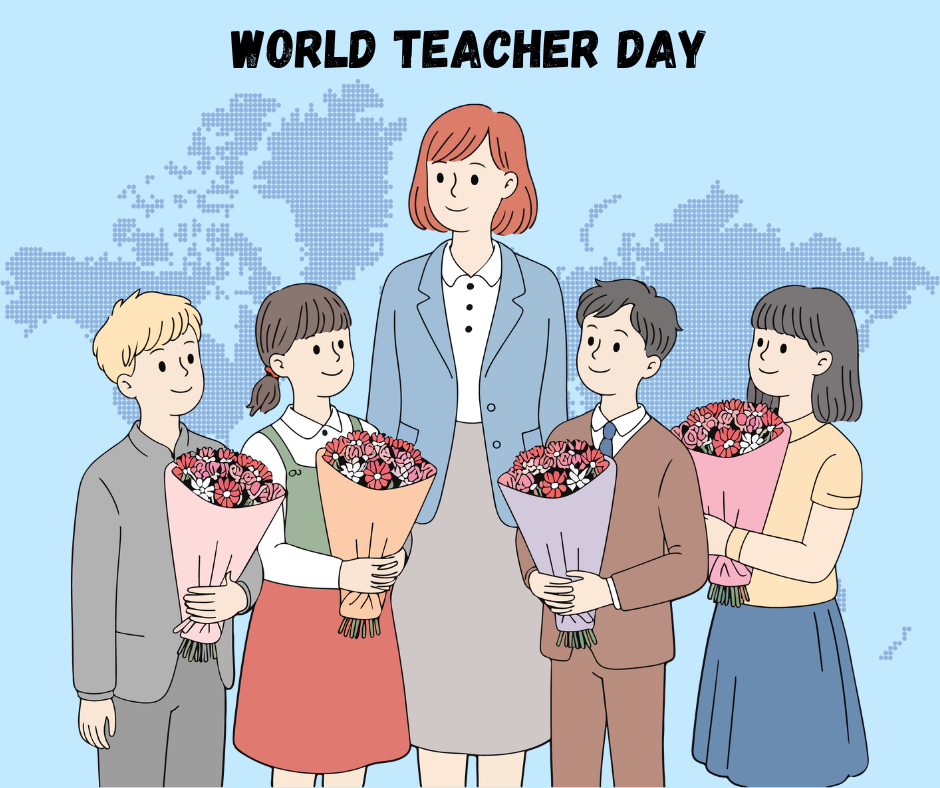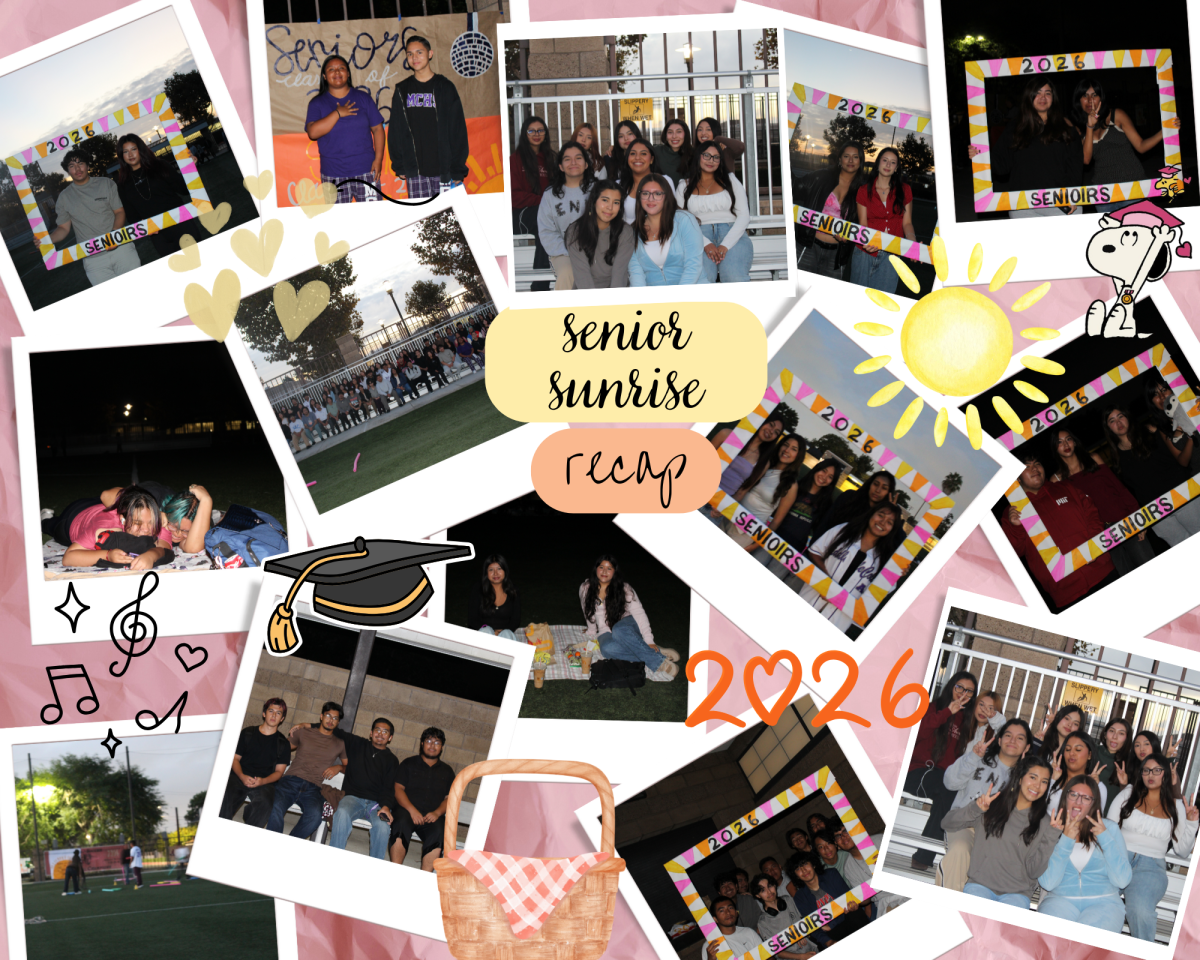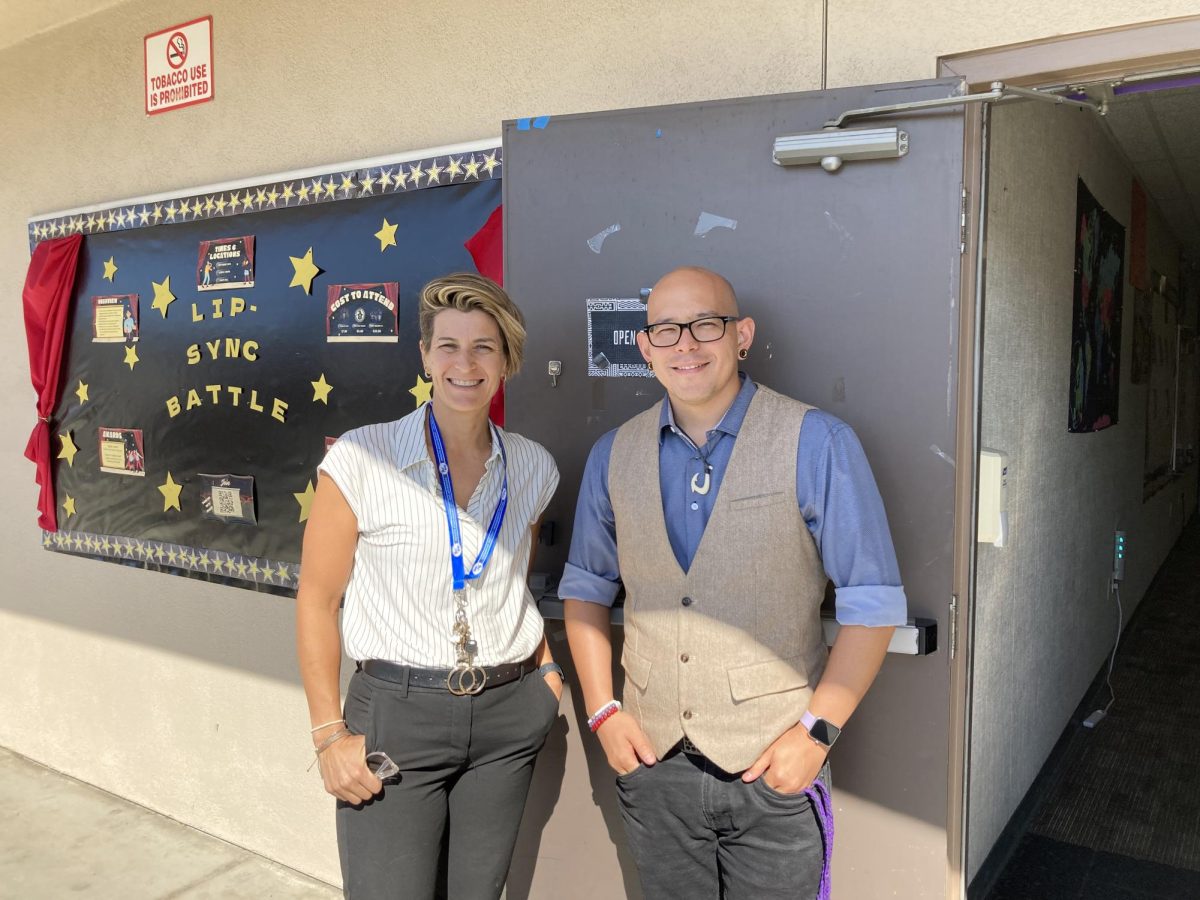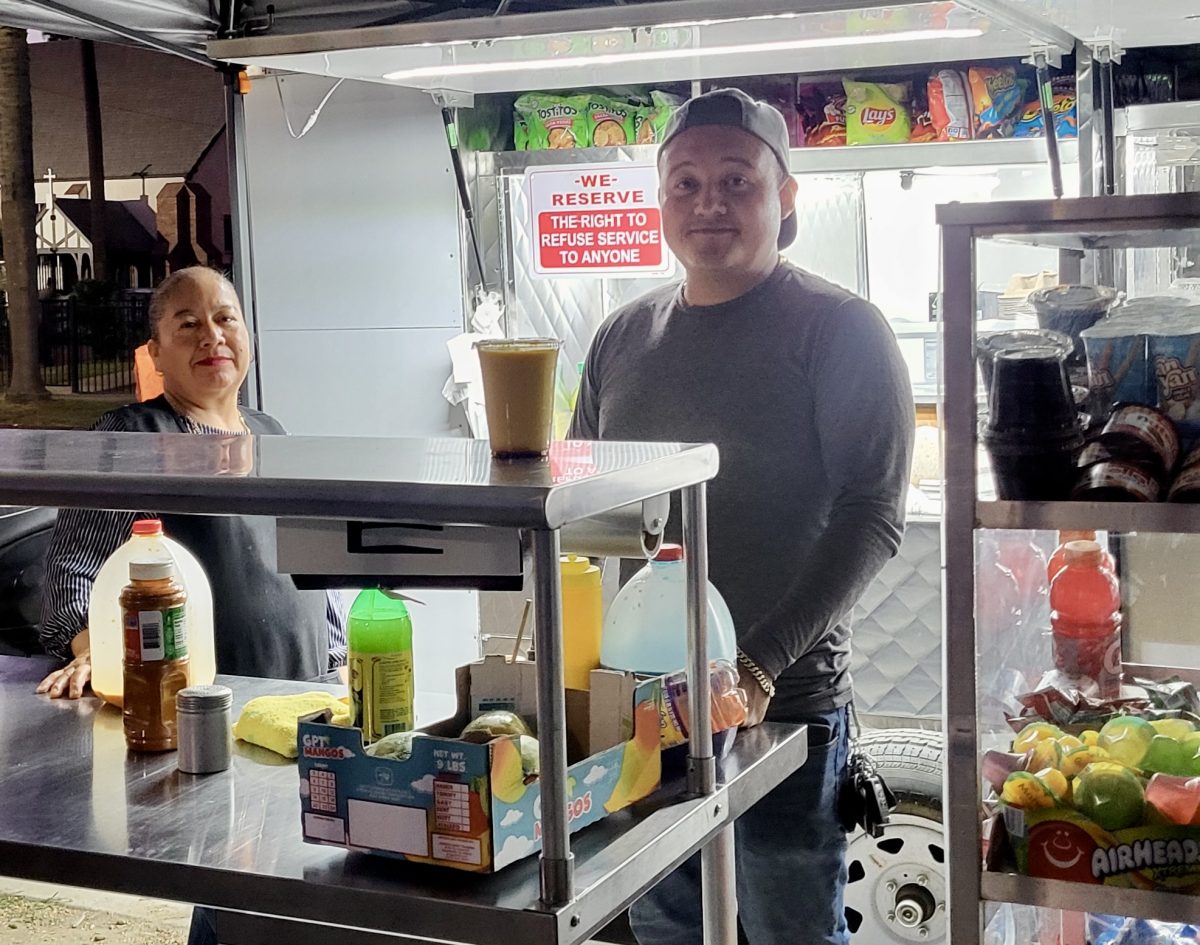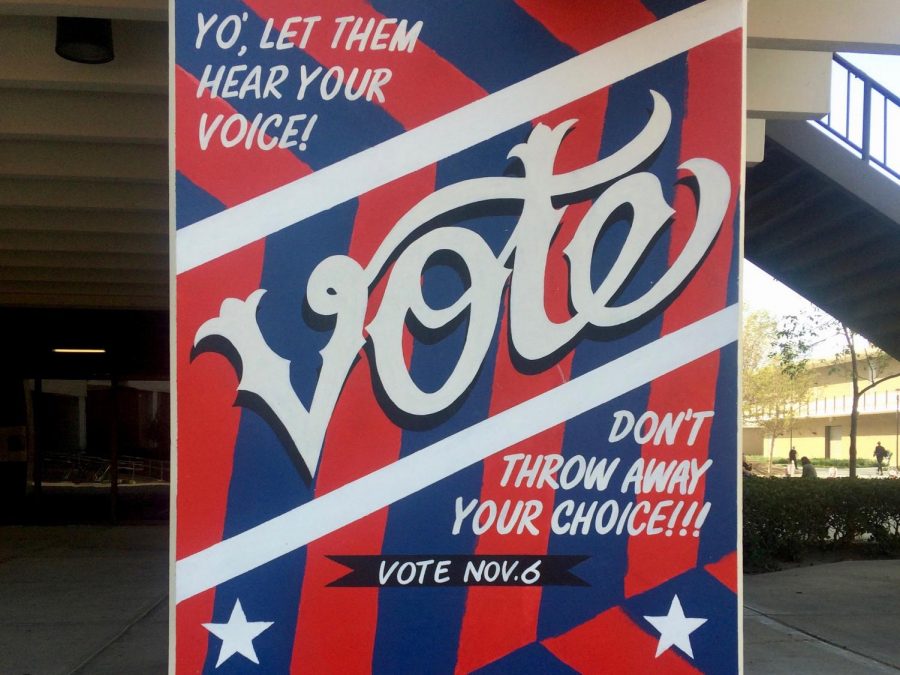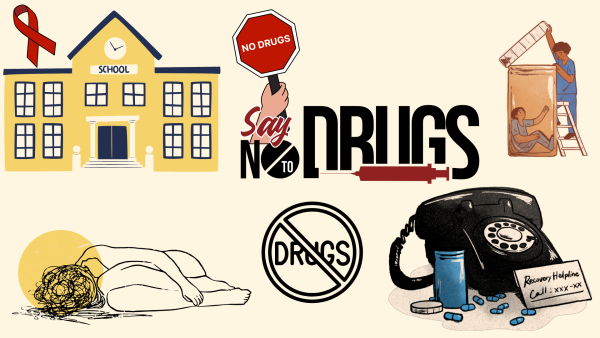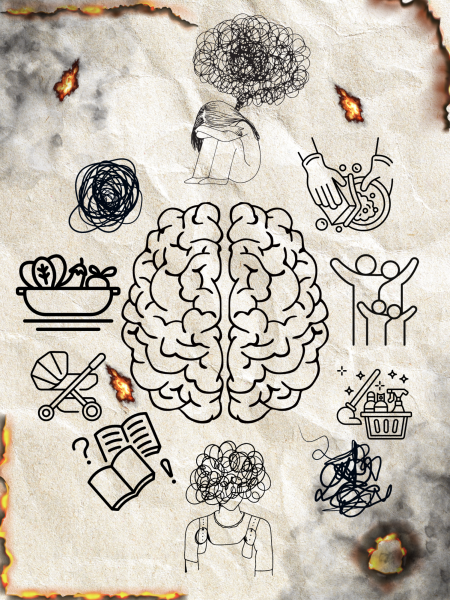The Next Generation of Voters
A local mural depicts the need to vote.
The moment we turn 18 is the moment we are seen as adults in the eyes of the law. Most teens will think about all the things they can buy and legally do. However, most do not think about their newly gained freedom to vote.
Senior Paola Fierro is a part of the Latinx community and was able to vote in the 2018 midterm elections, “I went to vote because you can’t let other people decide for you on what’s happening in our country.” Other MCHS students were not eligible to vote in these midterm elections due to the fact that many are not 18. However, at the age of 16, Californians can pre-register to vote, so when they turn 18they are immediately registered. California is one of the 14 states that allow pre-registration. Efforts have been made to make voting easy in California, and students should take advantage of that. At Santa Ana College, volunteers could be seen registering college and MCHS students in no more than five minutes.
Some cannot vote because they are not citizens, but the decisions made in this country still affect them, and as Fierro said, “It’s important to stand up for those who can’t vote.” Elections affect our lives and our families. Children that come from immigrant parents might not have grown up seeing their parents vote, but the decisions made still affect them. Use your right to vote to help your families and everyone else who would like to vote but cannot.
A DACA student from MCHS is not eligible to vote but believes voting is a “great privilege,” and people need to take it seriously. As Hispanics, this student believes many do not worry as much as they should about voting, “Hispanics do have a chance to vote, but they might not understand it or don’t care.” The voter turnout in 2016 for Hispanics was 45 percent while African Americans and White people had a 60 and above percent. Out of the Hispanics who are eligible to vote, this is a low turnout. This student states that immigrants should care, “Anything that happens here affects you. Your vote does matter, it makes a difference.”
Having people from minorities in Congress is beneficial to all minorities because they can have someone to represent them. Minorities understand the important issues to that minority and can address them in government. The 2018 midterm elections have placed many minorities in Congress. The African American community, the Latinx community, the Muslim community, the LGBT community, and the Native American community were given representatives in Congress. Additionally, the younger generations have gained representatives with the youngest person in Congress being Alexandria Ocasio-Cortez, a 29-year-old.
Fierro stated, “We are minorities, and we really do need to improve a lot,” making a choice that you believe will benefit you is important, “Your vote actually does count, even if it’s just one in a million.”
Mrs. Peterson is an active voter and believes it is a great way to hold politicians accountable, “If you don’t like the way the government is working, it’s easy to feel like you don’t have a voice,” and that is why it is important to vote. The media was covered with advertisements not only addressing the candidates but also encouraging people to register and vote. “The reason this election this year had so many people vote is because they are not happy with the way things are going, and they want their voices to be heard,” said Mrs. Peterson.
Her polling station was close to empty, but she addressed the fact that many others had to wait in line for an hour just to exercise their right to vote. Even the wording on prepositions can get confusing to Mrs. Peterson, and though she is an English teacher, it shows how difficult understanding the ballot can be for everyone, especially the younger generations. Voter turnout for the younger generations has been low and Fierro stated, “[people her age] want to vote, I just don’t think they want to put in the time.”
Students, let us not become the generation of “whiners” or the generation of “uninformed voters.” Let us become the generation that decides their future by voting and staying informed, not only for ourselves, but for others who cannot.
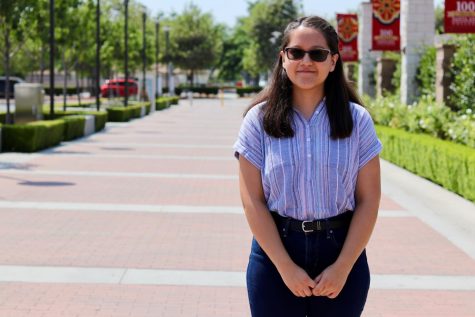
Fun Facts:
I have an obsession with shoes.
I'm a vegan.
I have ruby ball cacti named Nora and Sandy.

